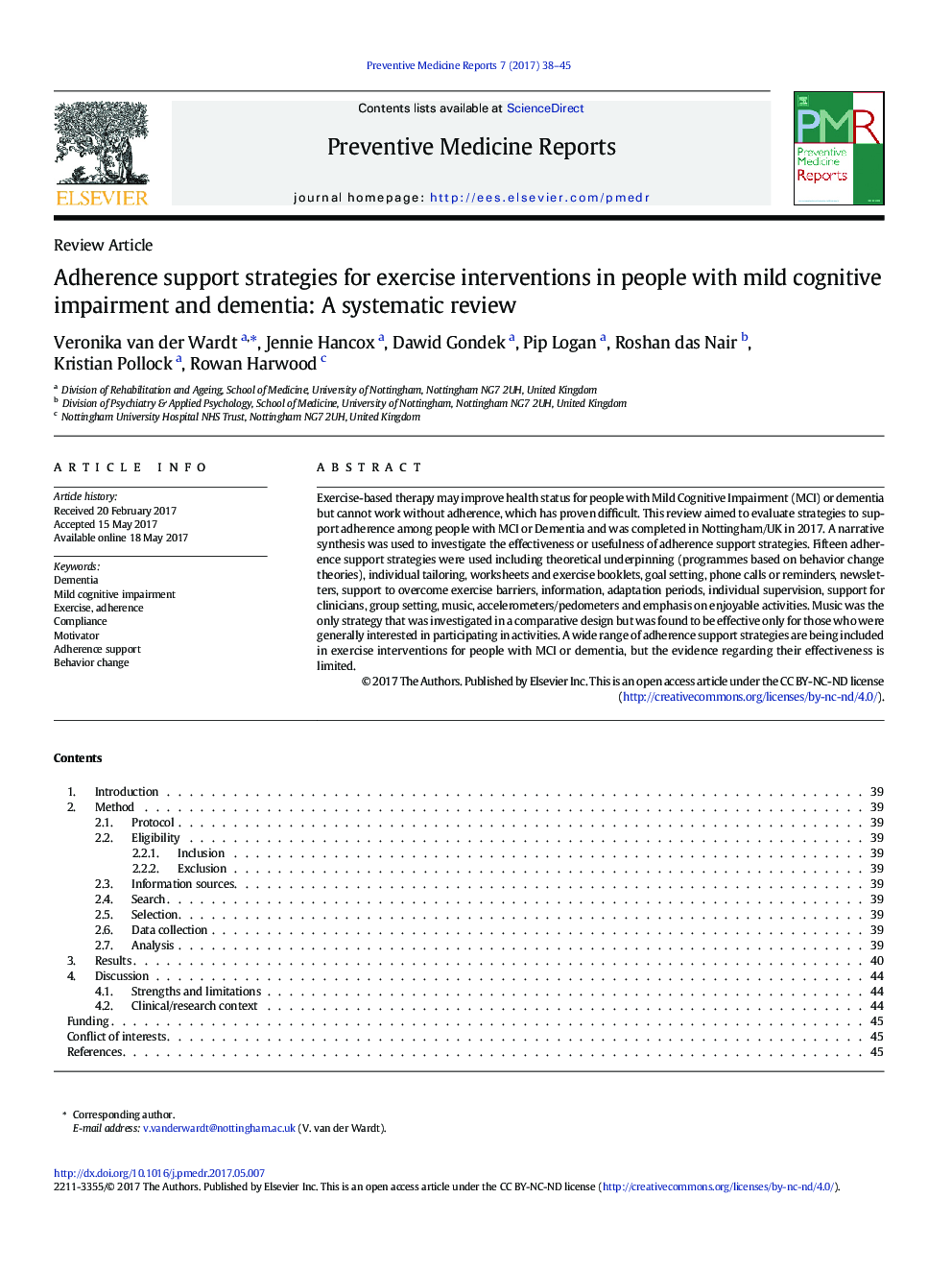| Article ID | Journal | Published Year | Pages | File Type |
|---|---|---|---|---|
| 5723697 | Preventive Medicine Reports | 2017 | 8 Pages |
Exercise-based therapy may improve health status for people with Mild Cognitive Impairment (MCI) or dementia but cannot work without adherence, which has proven difficult. This review aimed to evaluate strategies to support adherence among people with MCI or Dementia and was completed in Nottingham/UK in 2017. A narrative synthesis was used to investigate the effectiveness or usefulness of adherence support strategies. Fifteen adherence support strategies were used including theoretical underpinning (programmes based on behavior change theories), individual tailoring, worksheets and exercise booklets, goal setting, phone calls or reminders, newsletters, support to overcome exercise barriers, information, adaptation periods, individual supervision, support for clinicians, group setting, music, accelerometers/pedometers and emphasis on enjoyable activities. Music was the only strategy that was investigated in a comparative design but was found to be effective only for those who were generally interested in participating in activities. A wide range of adherence support strategies are being included in exercise interventions for people with MCI or dementia, but the evidence regarding their effectiveness is limited.
